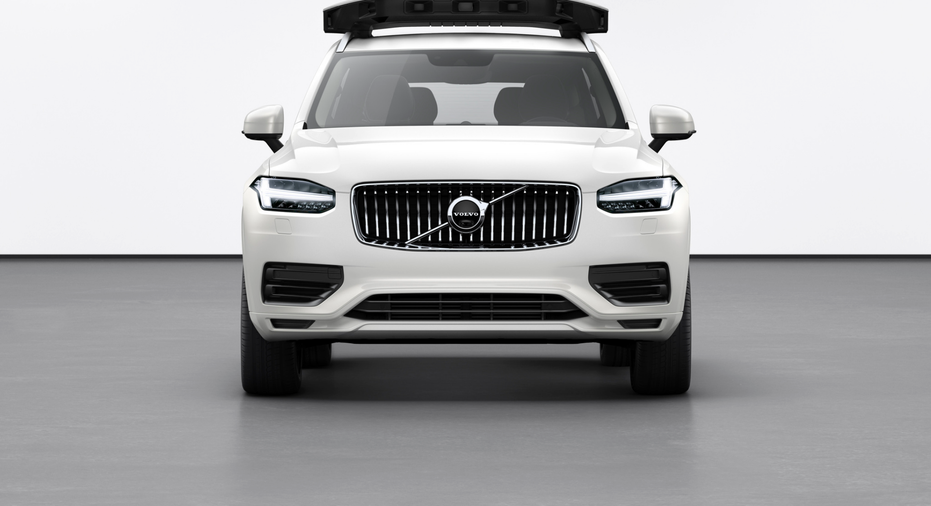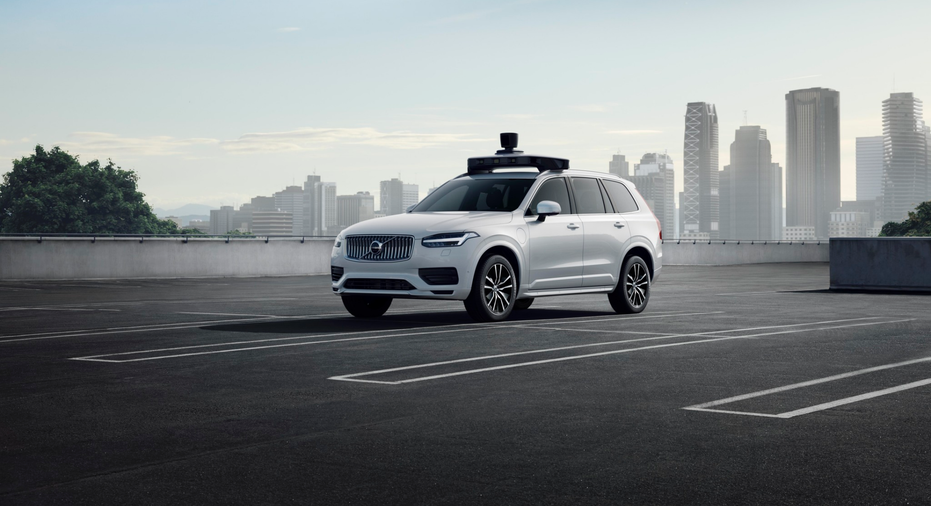Uber tests drone food delivery, launches new autonomous SUV
This undated product image provided by Volvo Cars shows the Volvo XC90 SUV. Uber is teaming with Volvo Cars to launch its newest self-driving vehicle. The ride-hailing company said Wednesday, June 12, 2019, that it can easily install its self-driving system in the Volvo XC90 SUV. (Volvo Cars via AP)
WASHINGTON – Uber is testing restaurant food deliveries by drone.
The company's Uber Eats unit began the tests in San Diego with McDonald's and plans to expand to other restaurants later this year.
Uber says the service should decrease food delivery times.
It works this way: Workers at a restaurant load the meal into a drone and it takes off, tracked and guided by a new aerospace management system.
The drone then meets an Uber Eats driver at a drop-off location, and the driver will hand-deliver the meal to the customer.
In the future, the company wants to land drones atop parked vehicles near delivery locations and secure them to the vehicle for the final mile of the delivery.
Last year Uber and the city of San Diego won a bid from the U.S. Federal Aviation Administration to test food delivery by air.
"We've been working closely with the FAA to ensure that we're meeting requirements and prioritizing safety," Luke Fischer, head of flight operations at Uber Elevate, said in a statement Wednesday.
The company said the knowledge it gains from the tests will help with Uber's planned aerial ride-sharing network.
Also Wednesday, Uber announced that it would work with Volvo Cars to build a vehicle that comes off the assembly line capable of driving autonomously.
The ride-hailing company's self-driving system will be installed in production versions of the Volvo XC90 SUV. The vehicle's steering and braking systems are designed for computer rather than human control, including several backup systems for both steering and braking functions and battery backup power. If the primary systems fail, the backup system will immediately act to bring the car to a stop.
Various sensors will allow Uber's self-driving system to safely operate and maneuver in urban areas, the company said.
Uber and Volvo Cars partnered in September 2016. This is the third car they've developed together.
Volvo says it plans to use a similar vehicle to introduce its own self-driving cars in the early 2020s.
Uber made the announcement at its third-annual Uber Elevate Summit.
The announcements came on a day with a flurry of activity in autonomous vehicle technology.
Argo AI, an autonomous vehicle company partly owned by Ford, announced Wednesday that it would expand testing to Detroit. The company already is testing vehicles in Pittsburgh, Miami, Washington, D.C., Dearborn, Michigan, and Palo Alto, California.
Argo also said it has deployed third-generation test vehicles based on the Ford Fusion gas-electric hybrid in all of the cities. They have better sensors and software including higher-resolution radar and cameras.
Hyundai and Kia said they would invest in autonomous vehicle software and hardware developer Aurora Innovation Inc., bringing to over $600 million the amount Aurora has raised in its most recent round of funding. The deal expands an agreement from last year.
Aurora wouldn't say how much Hyundai is putting in, but it announced in February that it had raised $530 million. So that means Hyundai-Kia and some other investors are kicking in around $70 million.
Volkswagen confirmed that it has cut ties with Aurora, which has offices in San Francisco and Pittsburgh. The German automaker is working on a tie-up with Ford that includes a partnership with Argo AI.
Earlier this week Fiat Chrysler and Aurora announced they were negotiating a partnership.





















